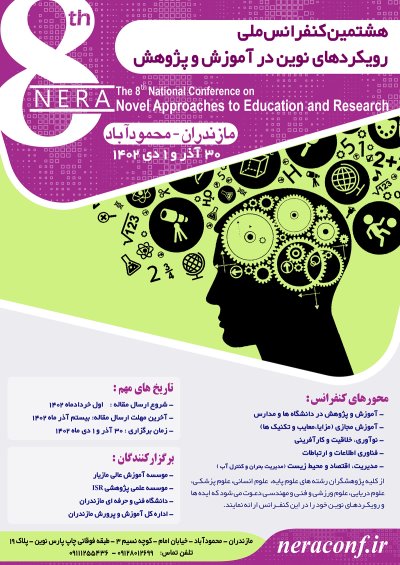0% Complete

نویسندگان :
کلمات کلیدی :
چکیده :
لیست مقالات بایگانی شده
طاهره محمدی تویه دروای - مهسا لازمی طالشمیکاییل
آمینه شریف زاده - شادیه اسعدی - ناهید امین پور - شیما نازنینی
فروزان ناصری - ثنا محمدزاده
روح اله چراغی - زهرا بیگدلی
نادره حمیدی - مرضیه سادات حسن پور اطاقسرا - زهرا صالحی - سمانه شریعتی بین کلایی
معصومه غلامی - راحیل اسدی
فاطمه دانشفر - کیمیا دانشفر
سید حسین علوی - اباذر اسلامی
فائزه مؤمنیان - مائده صالحیان





